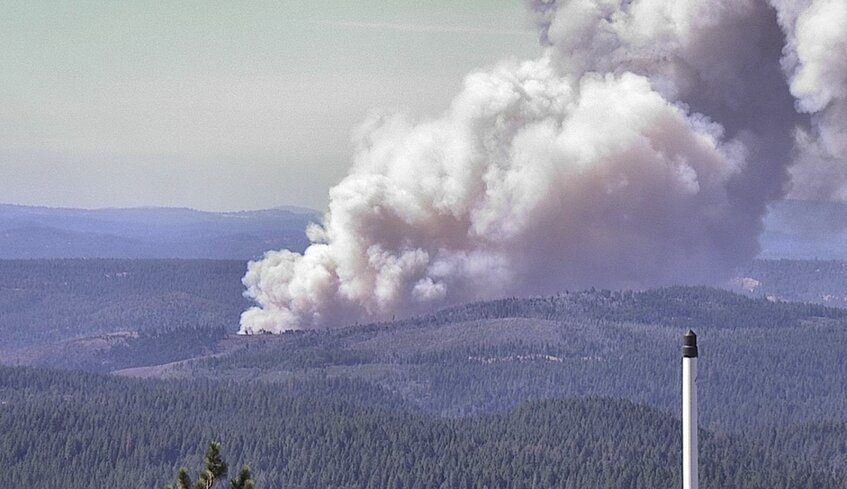Cycling in smoky conditions: What to consider
Wildfires in Canada are affecting air quality in many provinces
 Photo by:
Photo by: US Forest Service
Photo by:
Photo by: US Forest Service
Canada is currently facing its most devastating wildfire season in history, with numerous fires raging from coast to coast and emitting massive columns of smoke into the atmosphere. There are fires in many parts in the country, including Ontario, Alberta, Northwest Territorities and Saskatchewan. Yellowknife, the capital of N.W.T, is to be fully evacuated by Friday. In many of these areas, the air quality is very high.
Canada’s Air Quality Health Index (AQHI) provides offers a snapshot of current and forecasted air quality with a simple numerical scale: a reading of zero to three means a low health risk, four to six indicates a medium risk, seven to 10 presents a high risk and any number above 10 indicates very high risk. On Wednesday, several regions in Ontario and Quebec will be in the medium- and high-risk zones. The Sport Information Resource Centre, which has partnered with Health Canada to offer guidance on what action athletes, coaches and athletic event organizers should consider taking in response to AQHI readings, recommends that outdoor exercise and events be cancelled, rescheduled or moved indoors when an AQHI readings climb above six.
Dr. Michael Koehle, a respiratory physiologist and medical doctor at U.B.C. gave some guidelines as to what to do when the air is smoky.
“Athletes are advised that, in many areas, it’s OK to continue outdoor workouts as long as they do not experience smoke-related symptoms like coughing or throat irritation. If they do have symptoms, they should restrict outdoor activities to low-intensity activities,” Koehle said.
Risks of smoke inhalation
It should be noted that the side-effects of smoke in the lungs can be quite severe.
“Inhaling large volumes of wildfire smoke can inflame the lungs,” Jennifer Stowell, a postdoctoral associate at Boston University’s School of Public Health said in the New York Times. She says that some research has said that wildfire smoke “may be more toxic” to the lungs than standard urban air pollution. “It contains a distinct mix of particulates that activate inflammatory cells ‘deep in the lungs’ while hindering other cells that can dampen the inflammatory response later,” Stowell adds.
Some medications could be problematic
The guidelines go on to suggest that athletes experiencing shortness of breath should consult their medical professional. They warn that some asthma medications (i.e. bronchodilators) may actually exacerbate symptoms by allowing more smoke inhalation. Masks are helpful at preventing inhalation of smoke particles, if cyclists can tolerate them while riding.
If the air quality is bad where you are, and you don’t need the bike for commuting, consider riding inside for a few days until the fires (hopefully!) subside. And if you need the bike for work or school, you may want to consider a mask while riding.
